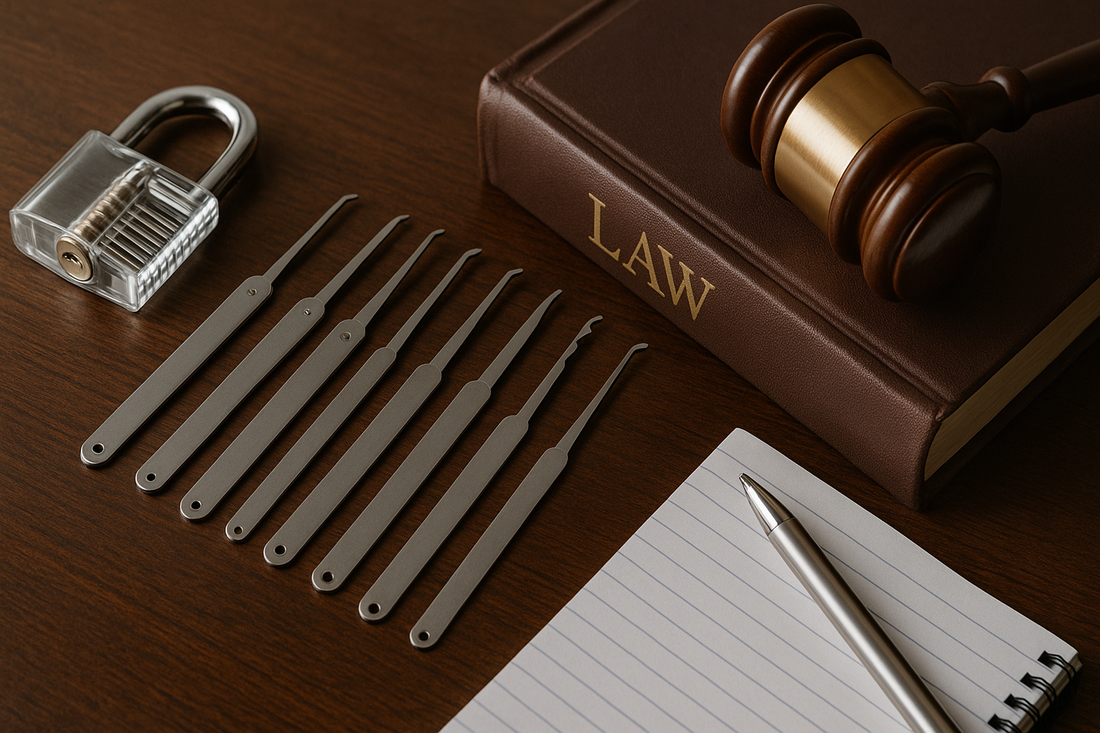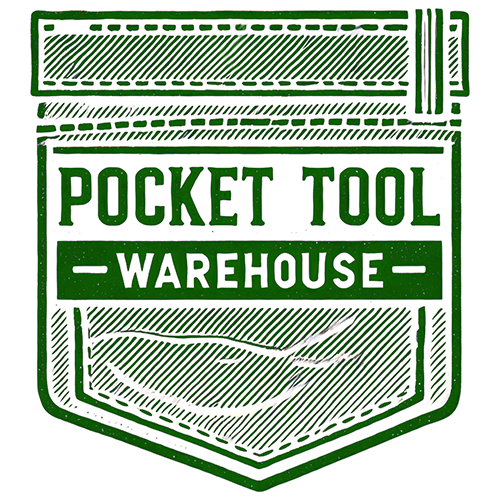
Is Lock Picking Legal?
Share
This posts explains general trends and points to some representative state laws for illustration. It’s not legal advice and is not a substitute for speaking with an attorney about your particular situation. Laws change and may differ by jurisdiction.
In the United States, owning lock picking tools and practicing with them as a hobby is legal. When people reference lock picking tools being against the law, commonly referring to them as "burglary tools," what they're actually referencing is some state laws regarding possessing a tool with "intent" to commit a crime.
Basic Rules
Owning lock-picking tools is legal. Many hobbyists, locksmiths, collectors, and students lawfully possess sets for training, sport, and legitimate work. There's no state or federal law that outright bans ownership.
Intent Matters
A number of state laws criminalize possession with intent to commit burglary or other crimes. That means mere possession is often legal, but if the circumstances show you intended to use them criminally, you can be charged. Courts look at context: where you were, what else you had with you, whether you were near a place you intended to break into, recent suspicious behavior, etc.
Examples from state law (representative — not exhaustive)
California (Pen. Code §466): Possession of burglary tools (which may include picklocks) with felonious intent is a crime; even tools associated with burglary can trigger charges if intent is proven.
Texas (Penal Code §16.01 & related): Texas defines “criminal instruments” and can make possession or use unlawful when the instrument is designed/adapted for criminal use or intended to be used that way.
Carrying vs. Owning
Carrying a pick set in public or in a vehicle changes the facts police and prosecutors will consider. Even if ownership at home is fine, carrying tools in your pocket late at night near closed businesses can look very different to law enforcement and could lead to detainment and charges if the surrounding facts suggest criminal intent.
Practical Tips
Practice at home or in a controlled environment. Use practice locks and avoid attempting entry on locks you don’t own.
If you’re a hobbyist traveling to meet other pickers, consider keeping communications/emails showing the meeting.
Don’t carry picks in public without a legitimate reason. If you must transport tools, put them in checked luggage or in your vehicle with evidence of legitimate purpose.
Avoid tools that are explicitly “burglar tools” in jurisdictions that list items by name. Some statutes call out specific implements. Know your local code. (Shaved Keys is a good example of these tools.)
Conclusion
Locksport isn’t just about the technical challenge of opening a lock, it’s about the satisfaction that comes with problem-solving, patience, and skill. Like chess or puzzles, practicing on locks sharpens your mind and your dexterity. It’s a hobby that rewards discipline and focus while connecting you with a community of like-minded enthusiasts.
Beyond personal enjoyment, these skills can prove surprisingly useful in everyday life. With proper practice (and the right circumstances), you might be able to lend a hand when a friend or family member accidentally locks themselves out of a shed, toolbox, or padlock. Knowing you can help someone in a moment of frustration adds a practical benefit to what’s already a deeply rewarding pastime.
Approached responsibly, locksport offers both a constructive challenge and the peace of mind that you’re honing a skill with real-world value.

